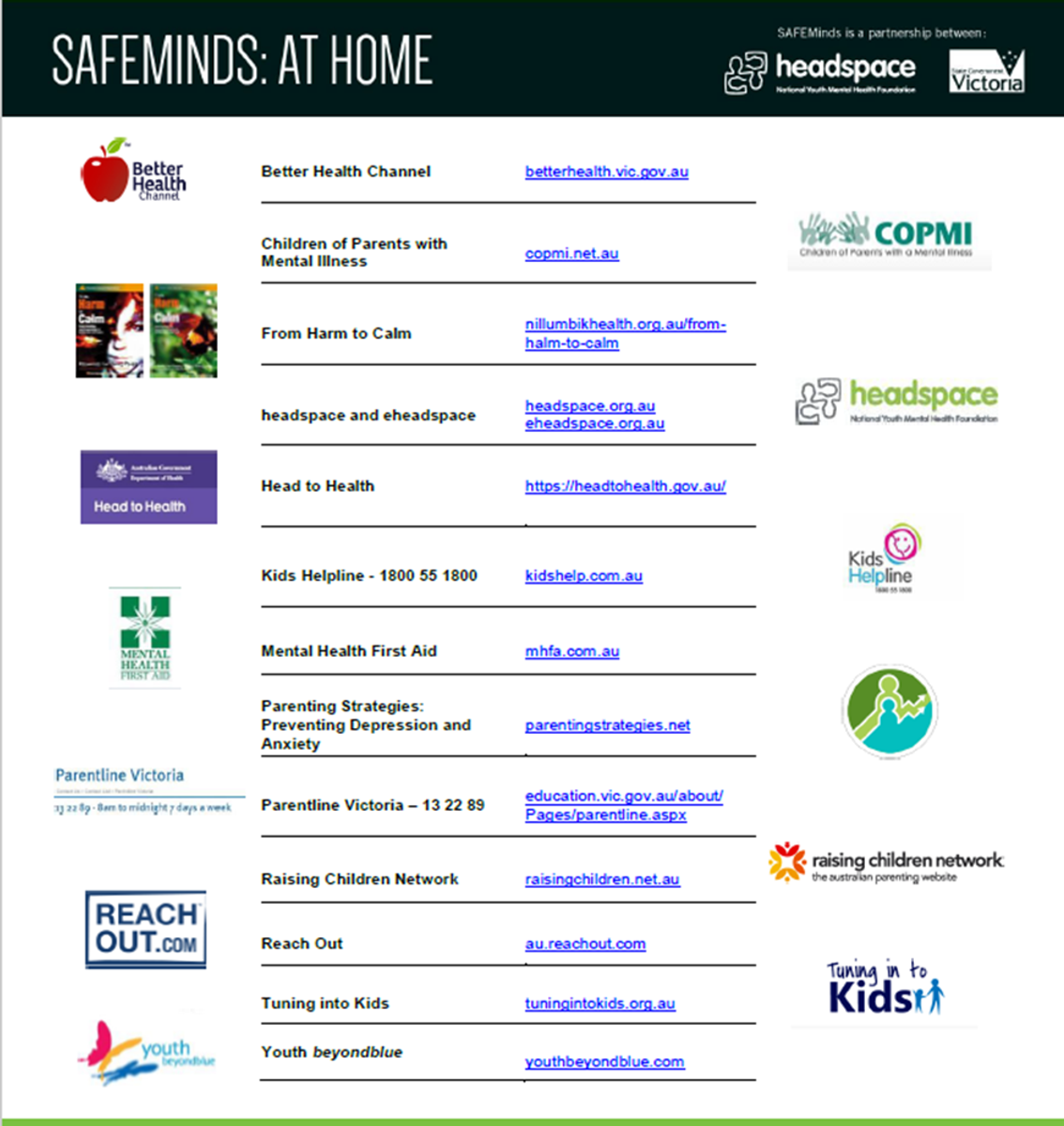Wellbeing
Vermont Secondary College

Wellbeing
Vermont Secondary College
YOUR QUESTIONS ANSWERED
Thank you to the overwhelming number of responses we received with regard to questions around the wellbeing of your children and how the Wellbeing team operates here at Vermont Secondary College. Please see below for a selection of some of the most common questions. Some of the questions around anxiety will be addressed in a separate article in an upcoming newsletter.
What support services are available through the school for students who may be struggling personally or academically?
Students who are struggling academically or with school in general often work with their student managers/house teams as a first port of call. This may include supports to help with organisation, liaising with classroom teachers or providing some more individual support.
Students who are struggling with their well being and for whom these struggles are having a greater impact on their ability to access their education may be referred to the Well Being team. Generally, students are referred by their student managers but students may also contact the team directly, as may parents.
The Well Being team currently consists of four staff members:
Leesa Moar – Senior Social Worker and Team Leader
Alex Tiver – Well Being Team Member and Classroom Teacher
Paula Hall – Mental Health Practitioner
Bhagya Senatilaka – Social Worker
Depending on the circumstances, Well Being are able to offer a range of supports from single session therapy, short to medium term case management and short term counselling. If students require further and more ongoing support, the Wellbeing team often works with families to provide information about external providers such as EACH, Headspace and how to get a mental health plan through their GP.
During term 3, the Wellbeing team offered a program for Junior students on ‘coping skills’. This program covered a range of topics including managing anxiety and distress. Students volunteered for the program and the sessions ran during both lesson times and afterschool. Students who attended the program reported that it was a success and we hope to run it again.
How can students contact Wellbeing and how can we make it easier for students to come forward?
Students can and often do contact the Wellbeing team in a variety of ways. They can message any member of the wellbeing team through Microsoft Teams or come passed our office to make an appointment. Sometimes for students it can be helpful for their student manager to be involved in introducing them to the team and explaining how the team works here at the school. Ongoing discussions, when appropriate, in class, and education around mental health through our action days, like “R U OK” day, hopefully reduces stigma around help seeking and makes students feel more comfortable approaching Wellbeing.
How does the wellbeing team manage sensitivities to ensure students have privacy?
The conversations that students have with members of the Wellbeing team are generally confidential. We hope to provide a comfortable and safe space here in Wellbeing however there are some exceptions to confidentiality, such as, when there is a risk of harm to the student. When we need to break confidentiality, we try to involve the student in this process and give them as much choice as possible about how we contact families. How does the school support students who identify as non-binary or transgender?
We have developed a gender affirmation policy and as part of the implementation of this policy, staff underwent training earlier this year. Students who wish to change their names and pronouns on official documents, such as Compass and reports, can do so if parental permission is provided. Also, the Vermont Secondary College have been undertaking a process of consultation with our LGBTQI+ community to identify their experience of school and to seek feedback about how we can ensure school is a safe place for everyone. This data is currently being collated and reviewed.
How can parents and families approach conversations with their children with regard to self-harm and suicide?
If you have concerns about your young person’s safety with regards to thoughts of self-harm or suicide, it is appropriate and supportive for you to have a conversation with your young person. It is ok to be direct and ask whether your young person has had thoughts of suicide or has engaged in self-harm. Let them know that you are worried and asking out of concern, and are there to help and listen. If your child confirms that they are having thoughts of suicide or self-harm it is important that you remain calm in your response. Show them in the way that you respond that you are pleased they feel able to let you know and that you can cope with this information. If you have immediate concerns about your young person then you can take them to the emergency department of your local hospital otherwise talk through with them how they think you can help and please reach out to the school and let us know you concerns so we can work together with you to provide support.
What is the best way for parents to engage with the wellbeing team?
In general, we encourage parents whenever possible to contact their child’s student manager first when they have concerns for their child. Student managers are in a good position to provide initial support and guidance around what the school can do to help your child, particularly as they will know your student, their teachers and peers and are therefore often in a good position to make some initial suggestions about what might help. Parents may email or call the Wellbeing team direct however if the matter is of a more sensitive nature that you wish to discuss with Wellbeing first.
Are there any resources available for parents that would be helpful in supporting our children’s wellbeing?
Yes, there are many resources and some useful ones are below.



